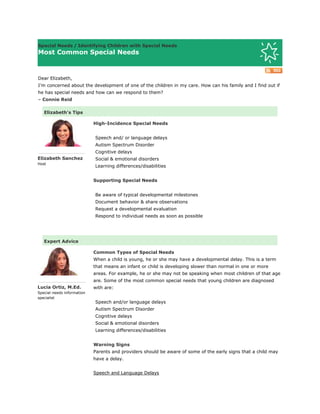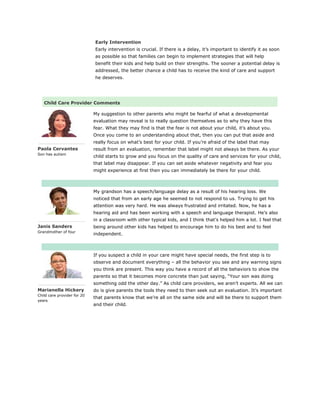Connie is concerned about a child in her care who may have special needs and asks how to identify if this is the case. The most common special needs seen in young children are speech/language delays, autism spectrum disorder, cognitive delays, social/emotional disorders, and learning disabilities. The document provides information on warning signs for each of these and recommends that caregivers document observations, share concerns with parents, and request a developmental evaluation if needed. Early identification and intervention is important to help support the child's development.



